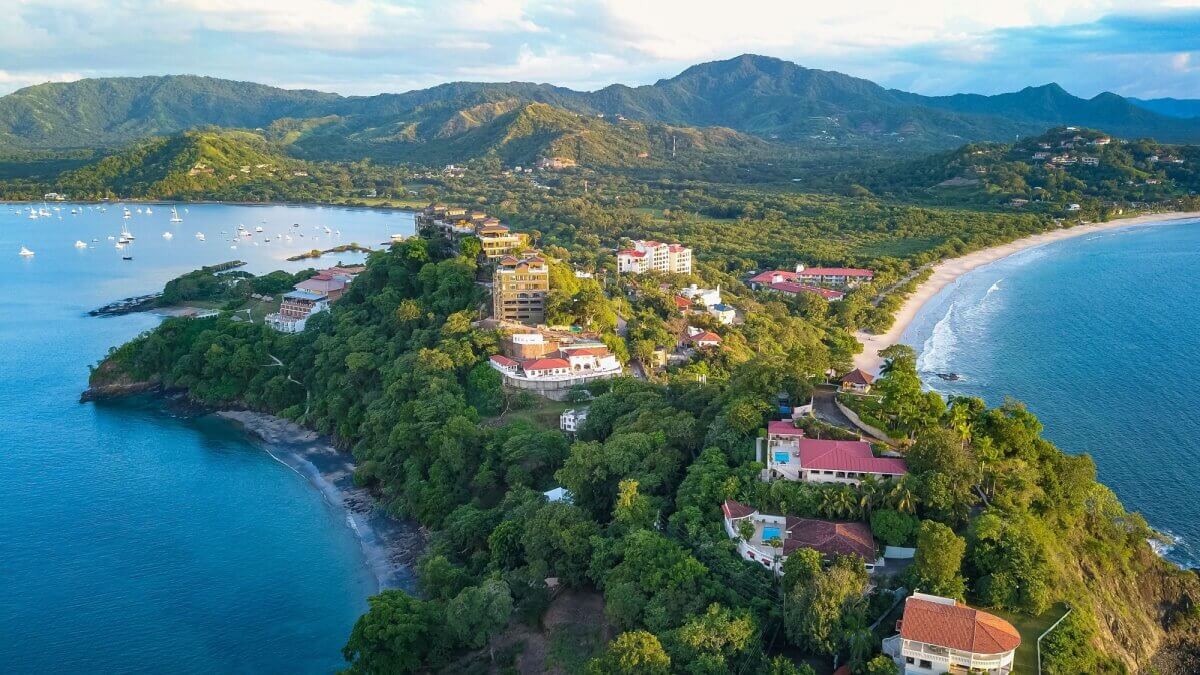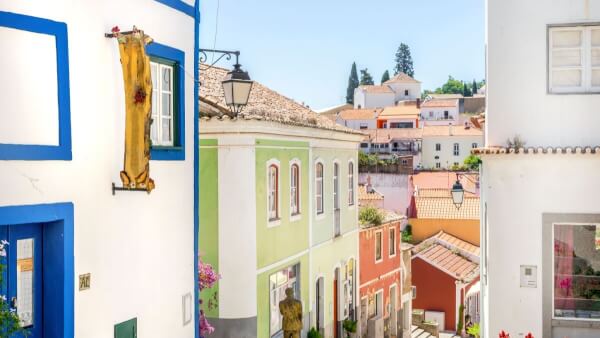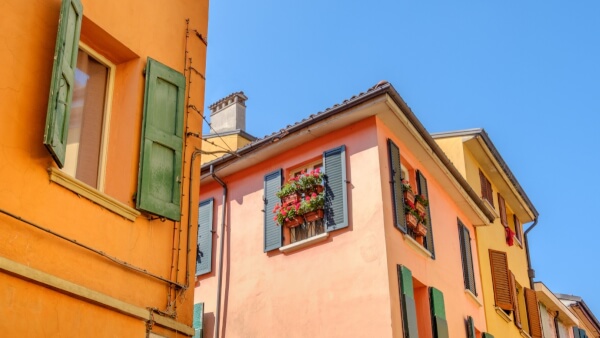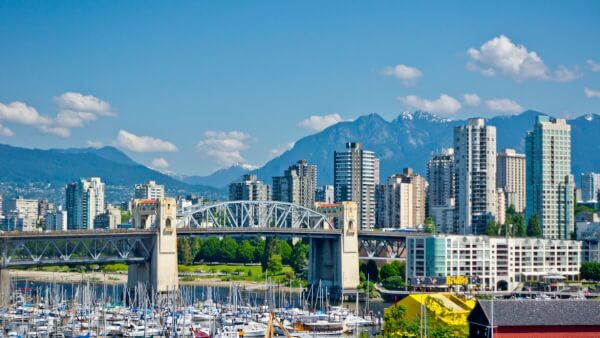How to get a mortgage in Canada as a non-resident: US guide
Find out what you need to know about getting a mortgage in Canada when buying property abroad as an American.

Getting a mortgage in Costa Rica as a foreigner is possible, but securing financing from a private bank often comes with challenges. The good news is that you have several other financing options available.
You can work with international lenders, use a self-directed IRA, get an equity line of credit with your US bank, or explore short-term options like owner financing. So, if a traditional Costa Rica mortgage doesn't work out, not all is lost.
In this guide, you'll learn everything you need to know about financing property in Costa Rica. We’ll also introduce Wise, which lets you transfer funds to Costa Rica in minutes, even when sending large amounts like your down payment.
Technically, there are no restrictions on foreigners applying for a mortgage in Costa Rica. But it's rare for Costa Rican banks to approve foreign applications, even if you're financially stable and can offer a substantial down payment.
That said, getting approved for a mortgage in Costa Rica by a private bank is still possible. And if it doesn't work out, you have other financing options available.
These include working with international lenders, using a self-directed IRA, getting an equity line of credit with your US bank, or securing owner or developer financing in Costa Rica. We'll explain each of these options later in more detail.
The residential real estate market in Costa Rica is experiencing an increase in demand from international buyers and is projected to grow at an annual rate of 3.88% from 2024 to 2029, reaching over 334 billion USD.¹
So, there's no better time than now to buy property in Costa Rica.
Nothing prevents you from applying for a traditional mortgage in Costa Rica, but the process isn't straightforward. Plus, like most things in Costa Rica, the pace is more relaxed than what you might be used to in the US.
That said, applying for a mortgage in Costa Rica shouldn't be too difficult. You can even apply online as a foreigner (extranjero no residente en el país).
But actually getting approved for a Costa Rica mortgage is a different story. It's also helpful to speak at least basic Spanish.
| Learn more about moving to Costa Rica in our full guide. |
|---|
So, can you get a mortgage in Costa Rica? Yes, but if you can't, there are other financing options available. Each option comes with its own requirements, advantages and considerations.
Traditional bank mortgages
These often offer the best long-term conditions, with terms of up to 30 years and interest rates typically ranging from 8.5% to 10%.²³⁴
If you're a foreigner, you'll usually need a large down payment (between 30% and 50%) and a strong credit history.² These mortgages are the hardest to obtain for foreigners.
International lenders
These institutions specialize in overseas property financing and are more familiar with foreign buyers. They typically charge higher interest rates than local banks but are easier to qualify for.
Self-directed IRA
This option allows you to use your retirement funds to purchase property in Costa Rica, but it has strict rules. The property must be an investment property (you can't live there) and you must return all of the rental income to the IRA.
You won't need a down payment since you're using your own funds, but it's a pretty inflexible option.
Equity line of credit (HELOC)
This option allows you to borrow money against your US property's equity.
You'll typically be able to get lower interest rates than Costa Rican mortgages, and the approval process is usually faster since you're working with your existing bank. But to qualify, you need to own property in the US with enough equity.
Owner financing
Sometimes, the property seller is willing to act as the lender. Getting owner financing is a common short-term solution in Costa Rica, but you can likely expect terms of just 1 to 3 years with interest rates between 6 to 9% and a high down payment requirement (50% or more).²
The approval process is much more flexible than with a bank, and you can negotiate the terms with the seller.
Developer financing
This option works similarly to owner financing but through the developer when buying new construction. Loans are typically short-term, with high interest rates and hefty down payments. The payment schedule usually aligns with the construction progress.
Mortgage rates in Costa Rica depend on how you're financing your property.
Private banks typically offer interest rates between 8.5% and 10%, but they may sometimes be higher for foreigners. If you're getting owner or developer financing, you can expect interest rates between 6 to 9%, but these options usually require high down payments.²
Down payments for foreigners in Costa Rica are typically between 30% to 50% of the property's value. Owner or developer financing often requires even more, typically 50% or higher of the purchase price.²
Consider opening a bank account in Costa Rica for an easier transfer process.

Now that we covered some of the basics of Costa Rica mortgages, you may be wondering: how to send money to pay for your property overseas?
Wise offers you a quick, secure and transparent way of sending money to Costa Rica. You get the mid-market exchange rate for your payments and see how much it’s charged for the transfer before sending the money from your bank.
With the Wise Account you can also hold 40+ currencies, spend money in 150+ countries, and receive like a local in 9 different currencies.
Please see Terms of Use for your region or visit Wise Fees & Pricing for the most up to date pricing and fee information
Buying a property in Costa Rica is a great investment for most people, but consider these important factors before applying for a mortgage.
Insurance requirements
Many mortgage lenders require both life insurance and property insurance.
Life insurance can be expensive in Costa Rica, especially if you're over 50, so factor this into your monthly costs. Property insurance can be expensive if you're buying property in an area with a high risk of natural disasters or right on the beach.
Legal and closing costs
Expect to pay around 3-4% of the purchase price in closing costs, including legal fees, transfer taxes (1.5% of the purchase price) and registration fees.⁵⁶ You'll also typically need an attorney to handle the transaction, which comes with additional fees.
Property management
If you're not living in Costa Rica full-time, you'll need to budget for property management services. Some agencies charge a flat rate, others a percentage of your rental income.
Rental market potential
Costa Rica has a strong rental market, especially in tourist areas, but this income will most likely be seasonal. You'll likely make less money during the rainy season (May to November), but the rental income can still help offset your mortgage payments.
It depends on your lender, but the documents required to get a mortgage in Costa Rica are largely similar to what you'd expect in the US. You'll typically need:
- Bank statements from the last 6-12 months
- Tax returns from the past 2-3 years
- Proof of income
- Credit report
- Valid passport
- Proof of address
- Marriage certificate (if you’re married)
- Property assessment
- Title search results
- Property insurance documentation
You'll need to get your documents translated into Spanish and apostilled or authenticated, so make sure to budget for these costs.
Getting a mortgage in Costa Rica might take longer than what you'd expect in the US, especially if you're applying for traditional bank loans. Owner and developer financing often move faster.
- Research your financing options and different lenders
- Gather all required documentation
- Choose your property
- Submit your application with all required documentation
- Wait for the lender's decision
- Work with a local attorney to complete the purchase and financing
It's important to work with a qualified attorney during this process.
They'll make sure that the property purchase meets all of the necessary legal requirements and that your interests are protected. Property in Costa Rica isn't as regulated as it is in the US, so you'll need a lawyer to do thorough due diligence.
It depends. Typically, getting a mortgage in Costa Rice through a bank will take longer than seller financing.
Costa Rica is famous for its Pura Vida spirit, and this relaxed approach to life extends to business practices as well. What might take a week in the US could take a month in Costa Rica.
This doesn't mean that things won't get done - they will - but you should adjust your expectations and embrace the more laid-back timeline.
To improve your chances of getting financing, look at different options instead of limiting yourself to one method. You might prefer a traditional mortgage but try to be flexible and consider alternatives like owner financing or international lenders, too.
You should also plan for a larger down payment, if possible. You can expect to put down at least 30% of the property's value, but having 50%+ increases your financing options and potentially improves your terms.² A big down payment demonstrates your commitment to Costa Rican lenders, who tend to be conservative.
Yes, you can buy property in Costa Rica as a US citizen, and you don't need to be a resident - being a tourist is fine. If you invest 150,000 USD or more in real estate, you can also qualify for Costa Rican residency.⁷
Costa Rican property market isn't regulated as strictly as in the US, so make sure to work with reputable real estate agents and attorneys who can verify property titles and check for any legal issues before you buy.
| Learn more about buying property abroad as an American in our full guide. |
|---|
The biggest challenges are getting financing and dealing with a less regulated market. You'll need to be thorough with property research because title issues are more common in Costa Rica than in the US.
Expect to make a larger down payment than you would in the US. Traditional bank financing requires at least 30% down, but even 50% is common. Owner or developer financing often asks for at least 50%, sometimes more.² International lenders might offer better terms, but it's not guaranteed.
Yes, but you'll need to get residency status. There are several visas you can apply for, but one of the easiest options is investing 150,000 USD or more in real estate.⁷ You can also qualify through retirement visas, marriage to a Costa Rican citizen, a digital nomad visa and other options.
Getting a mortgage in Costa Rica isn't as straightforward as in the US, but you still have options.
As long as you're prepared to pay a significant down payment, you should be able to qualify for financing in Costa Rica. You can also consider using a self-directed IRA or equity line of credit (HELOC).
Sources
Sources checked 11.15.2024
*Please see terms of use and product availability for your region or visit Wise fees and pricing for the most up to date pricing and fee information.
This publication is provided for general information purposes and does not constitute legal, tax or other professional advice from Wise Payments Limited or its subsidiaries and its affiliates, and it is not intended as a substitute for obtaining advice from a financial advisor or any other professional.
We make no representations, warranties or guarantees, whether expressed or implied, that the content in the publication is accurate, complete or up to date.

Find out what you need to know about getting a mortgage in Canada when buying property abroad as an American.

Find out what you need to know about getting a mortgage in Portugal when buying property abroad as an American.

Find out what you need to know about getting a mortgage in Italy when buying property abroad as an American.

Find out what you need to know about getting a mortgage in Canada and the different types available for Americans.

Find out what you need to know about getting a mortgage in Japan when buying property abroad as an American.

Find out what you need to know about reverse mortgages in Canada and how to get one as an American.